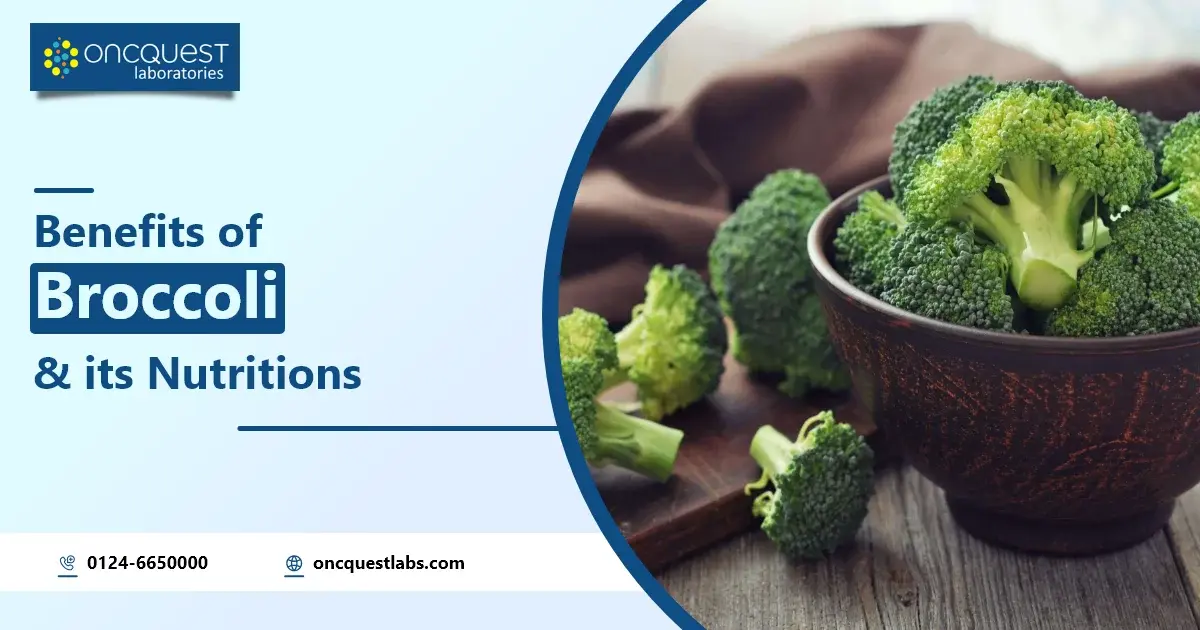Broccoli, a cruciferous vegetable, is widely celebrated for its impressive nutritional profile and numerous health benefits. Often regarded as a superfood, broccoli is packed with essential vitamins, minerals, and powerful antioxidants that contribute to overall well-being. Originating from the Mediterranean region, broccoli has become a staple in diets around the world, prized for its versatility and health-promoting properties.
Incorporating broccoli into your diet can offer a wide range of health advantages, from boosting the immune system to promoting heart health and reducing the risk of chronic diseases. Its rich nutrient content, including high levels of vitamin C, vitamin K, and fiber, makes broccoli a valuable addition to any meal plan. This article delves into the nutritional value of broccoli, exploring its benefits and how it can play a crucial role in supporting a healthy lifestyle.
Contents
Nutritional Value of Broccoli
Here is a table summarizing the nutritional value of broccoli per 100 grams:
| Nutrient | Amount per 100g | % Daily Value (DV) |
| Calories | 34 kcal | 2% |
| Carbohydrates | 6.6 g | 2% |
| Dietary Fiber | 2.6 g | 10% |
| Sugars | 1.7 g | – |
| Protein | 2.8 g | 6% |
| Fat | 0.4 g | 1% |
| Vitamin C | 89.2 mg | 99% |
| Vitamin K | 101.6 µg | 85% |
| Vitamin A | 623 IU | 12% |
| Folate (Vitamin B9) | 63 µg | 16% |
| Potassium | 316 mg | 9% |
| Calcium | 47 mg | 5% |
| Iron | 0.7 mg | 4% |
| Magnesium | 21 mg | 5% |
| Phosphorus | 66 mg | 7% |
| Zinc | 0.4 mg | 3% |
| Vitamin E | 0.8 mg | 4% |
| Lutein and Zeaxanthin | 1403 µg | – |
Note: Percent Daily Values (DV) are based on a 2,000-calorie diet. Your daily values may be higher or lower depending on your calorie needs.
Health Benefits of Broccoli
Broccoli is renowned for its extensive health benefits, supported by its rich nutritional profile. Here’s a detailed exploration of how broccoli can positively impact various aspects of health:
Cancer Prevention
Broccoli contains several bioactive compounds, notably sulforaphane, which have been extensively studied for their potential cancer-fighting properties. Sulforaphane is a potent antioxidant that helps neutralize harmful free radicals, reducing oxidative stress that can lead to cancer. It also promotes the body’s detoxification processes by enhancing the production of detoxifying enzymes in the liver. Research indicates that regular consumption of broccoli may lower the risk of certain cancers, including breast, prostate, and colorectal cancers. The vegetable also contains indole-3-carbinol, another compound with anticancer properties that may help regulate estrogen levels and reduce the risk of hormone-related cancers.
Supports Digestive Health
Broccoli is an excellent source of dietary fiber, which plays a crucial role in digestive health. Fiber adds bulk to the stool, promoting regular bowel movements and preventing constipation. It also helps maintain a healthy gut microbiome by providing nourishment for beneficial gut bacteria. A healthy gut microbiome is linked to improved digestion, a stronger immune system, and a lower risk of gastrointestinal diseases. Additionally, broccoli contains compounds like glucoraphanin, which can support the gut’s protective barrier and reduce inflammation, further contributing to overall digestive health.
Enhances Immune System
Broccoli is packed with vitamins and antioxidants that boost the immune system. Vitamin C, a key component of broccoli, stimulates the production of white blood cells, which are essential for fighting off infections. It also acts as an antioxidant, reducing inflammation and protecting immune cells from damage. The vegetable’s high vitamin K content supports the regulation of immune responses, while other antioxidants like beta-carotene and lutein further enhance immune function. Regular consumption of broccoli can help strengthen the body’s defenses against common illnesses and infections.
Promotes Bone Health
Broccoli is rich in vitamin K, calcium, and phosphorus, all of which are vital for maintaining strong and healthy bones. Vitamin K plays a crucial role in bone metabolism by aiding in the synthesis of osteocalcin, a protein necessary for bone formation and mineralization. Calcium and phosphorus are essential for building and maintaining bone density. Adequate intake of these nutrients can help prevent bone-related conditions such as osteoporosis and fractures. Including broccoli in your diet can contribute to overall bone health, particularly when combined with other bone-supportive nutrients.
Promotes Heart Health
Broccoli supports cardiovascular health through several mechanisms. Its high fiber content helps lower cholesterol levels by binding with bile acids and promoting their excretion. This reduction in cholesterol can decrease the risk of atherosclerosis, a condition characterized by the buildup of plaque in the arteries. Broccoli also contains potassium, which helps regulate blood pressure by balancing sodium levels and relaxing blood vessels. Additionally, the antioxidants in broccoli, including vitamin C and sulforaphane, reduce oxidative stress and inflammation, both of which are linked to heart disease. Regular consumption of broccoli can thus support heart health and reduce the risk of cardiovascular diseases.
Supports Eye Health
Broccoli is beneficial for eye health due to its high content of lutein and zeaxanthin, two carotenoids that are concentrated in the retina. These compounds protect the eyes from harmful high-energy light waves like UV rays and blue light, which can cause damage and lead to age-related macular degeneration (AMD) and cataracts. The antioxidant properties of these carotenoids help reduce oxidative damage to the eye tissues and improve overall visual health. Consuming broccoli regularly can thus contribute to maintaining good vision and preventing eye disorders.
Aids in Detoxification
Broccoli supports the body’s natural detoxification processes through its content of glucoraphanin and other phytonutrients. Glucoraphanin is converted into sulforaphane, which enhances the liver’s ability to detoxify harmful substances by increasing the production of detoxifying enzymes. These enzymes help neutralize and eliminate toxins from the body, reducing the risk of chronic diseases and promoting overall health. Broccoli’s detoxifying effects also extend to protecting cells from damage caused by environmental pollutants and chemicals.
Recommended Intake
To reap the full benefits of broccoli, aim to include it in your diet several times a week. A recommended serving size is about 100-200 grams per day, which translates to roughly one to two medium-sized florets. This amount provides a substantial intake of essential vitamins, minerals, and antioxidants without overconsumption. Broccoli can be enjoyed raw, steamed, roasted, or added to various dishes, making it easy to incorporate into your meals. Balancing your intake with a variety of other vegetables ensures a well-rounded diet and maximizes overall health benefits.
How to Prepare and Cook Broccoli
Broccoli is a versatile vegetable that can be prepared and cooked in various ways to retain its nutrients and enhance its flavor. Here’s how to get the most out of this nutritious veggie:
1. Washing and Cutting
- Washing: Begin by rinsing the broccoli thoroughly under cold running water to remove any dirt or pesticide residues.
- Cutting: Trim the tough ends of the stems and cut the broccoli into florets of similar size to ensure even cooking. You can also peel and chop the stems if you prefer to use them, as they are edible and nutritious.
2. Cooking Methods
- Steaming: Steaming broccoli helps preserve its vitamins and minerals. Place the florets in a steamer basket over boiling water and cook for 4-5 minutes until tender but still crisp. Avoid oversteaming to retain the vegetable’s bright green color and crunch.
- Boiling: Boiling is another method but can cause some loss of nutrients. Cook the florets in boiling water for 3-4 minutes until tender. To prevent overcooking, transfer them immediately to an ice bath to stop the cooking process.
- Roasting: Roasting broccoli enhances its natural flavors and adds a slight crispiness. Toss the florets with olive oil, salt, and pepper, and spread them on a baking sheet. Roast in a preheated oven at 425°F (220°C) for 20-25 minutes, turning occasionally, until the edges are crispy and golden brown.
- Stir-Frying: Stir-frying broccoli with other vegetables or protein sources makes for a quick and flavorful dish. Heat a small amount of oil in a pan, add the broccoli florets, and stir-fry for 5-7 minutes until tender-crisp. Add garlic, soy sauce, or other seasonings for extra flavor.
- Blanching: Blanching is useful for prepping broccoli for freezing or adding to salads. Boil the florets for 2-3 minutes, then immediately transfer them to an ice bath to halt the cooking process. Drain and pat dry before use.
Possible Side Effects
While broccoli is highly nutritious, excessive consumption can lead to some side effects. Eating large amounts may cause digestive issues such as bloating and gas due to its high fiber content. Broccoli also contains goitrogens, which can interfere with thyroid function if consumed in extremely large quantities, particularly for individuals with existing thyroid conditions. Additionally, the high vitamin K content in broccoli may affect blood clotting, potentially interfering with blood-thinning medications. Moderation and a balanced diet can help mitigate these risks while allowing you to enjoy broccoli’s many health benefits.
Conclusion
Broccoli is a powerhouse of nutrition, offering a wide range of health benefits including cancer prevention, digestive support, and enhanced immune function. Its rich content of vitamins, minerals, and antioxidants makes it a valuable addition to a balanced diet. By incorporating broccoli into your meals, whether through steaming, roasting, or stir-frying, you can enjoy its diverse health benefits. However, like any food, it’s best consumed in moderation to avoid potential side effects. Embracing broccoli as part of a varied diet can contribute significantly to overall health and well-being.
Frequently Asked Questions (FAQ)
Can eating too much broccoli cause digestive problems?
Yes, excessive consumption of broccoli can lead to bloating and gas due to its high fiber content. Moderation is key to preventing digestive discomfort.
Is broccoli good for weight loss?
Yes, broccoli is low in calories and high in fiber, which can help with weight management by promoting satiety and reducing overall calorie intake.
How should I cook broccoli to retain its nutrients?
Steaming is one of the best methods to preserve the nutrients in broccoli. Avoid overcooking to maintain its bright green color and health benefits.
Can broccoli affect thyroid health?
Broccoli contains goitrogens that may interfere with thyroid function if consumed in very large amounts. Individuals with thyroid conditions should consult their healthcare provider.
How can I incorporate more broccoli into my diet?
You can add broccoli to salads, stir-fries, soups, or simply enjoy it steamed or roasted as a side dish. It’s versatile and easy to include in various recipes.





